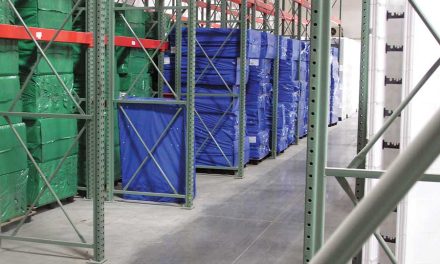Even if you don’t believe global warming is real, it hardly matters. The other negatives of fossil fuel consumption are pretty compelling by themselves.
The price and supply of energy are critically important to the ICF industry. When energy price is high and supply is low, ICF sales stand to rise. When energy price falls, sales of and interest in ICFs tends to fall with it.
But what exactly is the “energy problem” the U.S. faces? Many people say “We are running out of oil.” But that is far from the truth. The earth is not “running out” of oil. If we could tally up every molecule of oil in the ground, we would find that we have enough to last centuries.
We are not running out of oil. We are having to access less concentrated, harder-to-reach deposits. We have to dig deeper, go farther offshore, and venture farther into remote deserts and the Arctic. And once we recover the fuels, they are often less pure, so we have to go through more complex processing steps.
So far we have managed to keep fossil fuels flowing fairly well by improving our methods of extraction and processing. But it is inevitable that the cost of fossil fuels will increase over time, and we will have to divert development efforts from other priorities to keep the supply up. We will need to invest in ever larger and more elaborate equipment for processing. Our best engineers will need to devote more person-years of research to the problem; time which could be spent solving other problems.
In many ways this is nothing new and is not all bad. So we could simply look at a long-term increase in fossil fuel price (and decrease in availability) as part of a natural process of economic adaptation.
But here is where the second major aspect of “the energy problem” comes in. Use of fossil fuels has significant negative side effects. I won’t try to establish the risks from global warming here, as I am no scientist. But if you believe the threat is real, there is no greater contributor than burning fossil fuels. It produces massive amounts of carbon dioxide.
Even if you don’t believe global warming is real, it hardly matters. The other negatives of fossil fuel consumption are pretty compelling by themselves.
The first, of course, is the other forms of pollution from combustion. We are fighting a winning battle against toxic emissions with a steady stream of technical improvements in combustion control and exhaust scrubbing and filtration. But the cost, again, in talent and dollars is large and growing. For one example, new power plant standards will require preventing mercury in coal from going up the smokestack and getting into the atmosphere. This can be done by introducing activated carbon into the fire. But the cost can be high, and the use of carbon renders the fly ash from the power plant useless for most applications. As a result, we may have to go back to sending fly ash to the landfill, just when we had found many valuable uses for the material.
The other major side effect of the use of fossil fuels is that it sends hundreds of billions of dollars per year out of the United States and into the hands of people who use it against us. I have heard long discussions of whether we are, at the root, really fighting in the Middle East to protect our supply of oil. It seems clear to me that these discussions are almost completely irrelevant. The fact is that if we did not buy oil from the Middle East the wars would not happen. The residents of the Middle East simply would not have the money to buy enough weapons. And as journalists have readily reported, the terrorists we fear get much of their funding from parties whose wealth is directly or indirectly from Middle Eastern oil revenue. Whatever our motivations, if our purchases of oil from the Middle East stop, the fighting stops.
Those are the two major aspects of the problem. One, the inevitable rise in the cost of fossil fuels and the resources we have to devote to keeping the flowing. Two, the side effects of continuing to use fossil fuels—pollution and sending large sums of money to other countries and (often) people who don’t like us.
But that leads us to some follow-up questions. Such as, if that’s the past, what happens in the future? And what do we do about it?
Next issue: The New Energy Reality, Part 2

Pieter VanderWerf
President of Building Works, Inc., a consulting company that helps companies enter and invest in the construction products industry. He can be reached at pvander@buildingworks.com, and his company at www.buildingworks.com.













